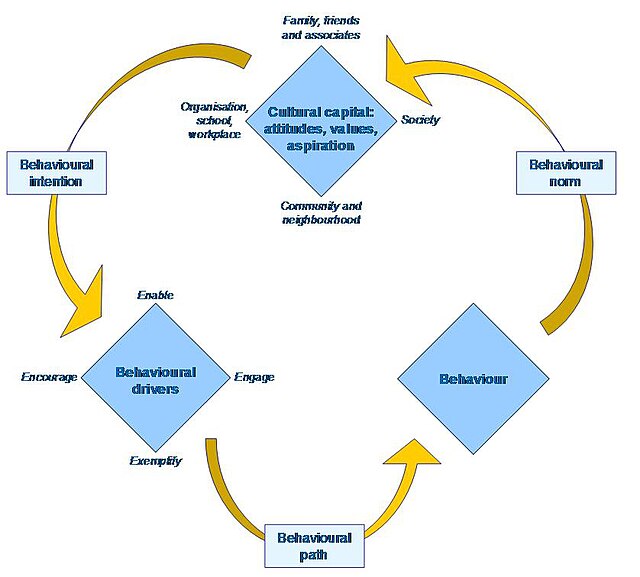Acculturation is a process of social, psychological, and cultural change that stems from the balancing of two cultures while adapting to the prevailing culture of the society. Acculturation is a process in which an individual adopts, acquires and adjusts to a new cultural environment as a result of being placed into a new culture, or when another culture is brought to someone. Individuals of a differing culture try to incorporate themselves into the new more prevalent culture by participating in aspects of the more prevalent culture, such as their traditions, but still hold onto their original cultural values and traditions. The effects of acculturation can be seen at multiple levels in both the devotee of the prevailing culture and those who are assimilating into the culture.
The four essential (paradigm) forms of acculturation
Culture change is a term used in public policy making that emphasizes the influence of cultural capital on individual and community behavior. It has been sometimes called repositioning of culture, which means the reconstruction of the cultural concept of a society. It places stress on the social and cultural capital determinants of decision making and the manner in which these interact with other factors like the availability of information or the financial incentives facing individuals to drive behavior.
Model of culture change
The Beatles are an example of changing cultural dynamics, including music, fashion, and lifestyle. Over a half century after their emergence, they continue to have a worldwide cultural impact.
A 19th-century engraving showing Australian natives opposing the arrival of Captain James Cook in 1770
An Assyrian child wearing traditional clothing.





